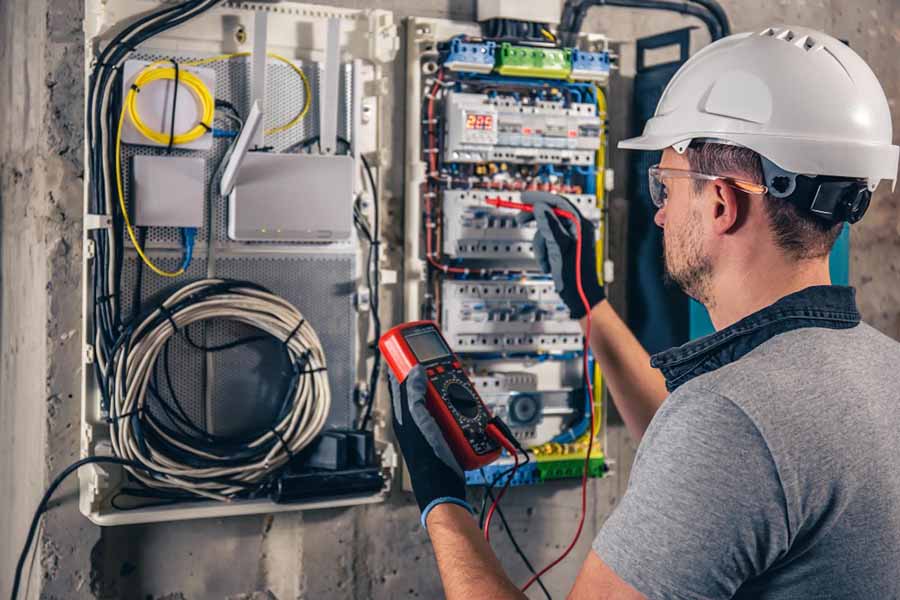Electrical emergencies can be both frightening and dangerous, posing significant risks to personal safety and property. Understanding the common causes of these emergencies can help prevent them and ensure that you know how to respond if they occur. Here, we explore some of the most frequent causes of electrical emergencies and offer tips on how to mitigate these risks.
1. Faulty Wiring
One of the most common causes of electrical emergencies is faulty wiring. Poorly installed, damaged, or outdated wiring can lead to short circuits, sparks, and fires. Homes with old wiring are particularly at risk, as the insulation around the wires may deteriorate over time, increasing the chance of electrical faults.
Prevention Tips:
- Have a licensed electrician inspect your home’s wiring, especially if it is older.
- Avoid overloading outlets with multiple high-wattage devices.
- Look out for warning signs such as flickering lights, burning smells, or warm outlets.
2. Overloaded Circuits
Circuits can become overloaded when too many devices are plugged into a single outlet or circuit. This can cause the circuit breaker to trip, cutting off power, or in worse cases, cause electrical fires.
Prevention Tips:
- Distribute electrical devices evenly across different circuits.
- Use power strips with built-in circuit breakers.
- Upgrade your electrical system if you frequently experience overloaded circuits.
3. Electrical Appliances
Faulty or old electrical appliances can also lead to emergencies. Appliances with frayed cords, exposed wires, or malfunctioning components can cause shocks or fires.
Prevention Tips:
- Regularly inspect appliances for signs of wear and tear.
- Replace damaged cords or appliances immediately.
- Avoid using appliances that emit strange noises, sparks, or smoke.
4. Water and Electricity
Water is a conductor of electricity, and when it comes into contact with electrical systems, it can cause shocks, short circuits, and fires. Common scenarios include water leaking onto electrical outlets or appliances.
Prevention Tips:
- Keep electrical devices away from water sources.
- Install Ground Fault Circuit Interrupters (GFCIs) in areas prone to moisture, such as bathrooms and kitchens.
- Immediately address any leaks or water damage near electrical systems.
5. DIY Electrical Work
Many people attempt DIY electrical work without the proper knowledge or tools, leading to unsafe installations and increased risk of electrical emergencies. Incorrect wiring or using the wrong components can result in serious hazards.
Prevention Tips:
- Always hire a licensed electrician for electrical work.
- If you must do minor electrical work yourself, ensure you understand the basics and follow safety guidelines.
- Never attempt major electrical projects without professional assistance.
6. Power Surges
Power surges can occur due to lightning strikes, problems with the utility company’s equipment, or the operation of high-powered electrical devices. Surges can damage electronics and appliances and can even cause fires.
Prevention Tips:
- Use surge protectors for your electronic devices.
- Unplug devices during storms.
- Consider installing a whole-house surge protector.
7. Rodent Damage
Rodents such as mice and rats can chew through electrical wires, creating exposed wires that can lead to short circuits and fires. This is particularly common in attics, basements, and other less frequently used areas of the home.
Prevention Tips:
- Regularly inspect areas where rodents might live for signs of chewing or damage.
- Use rodent repellents or traps to keep them away from your home.
- Seal any gaps or entry points that rodents could use to enter your home.
Conclusion
Understanding the common causes of electrical emergencies is the first step toward preventing them. Regular maintenance, vigilance, and professional assistance can significantly reduce the risk of such emergencies. Remember, electrical work is best left to the professionals—never compromise on safety. By taking proactive measures, you can protect your home and loved ones from the dangers of electrical emergencies.








